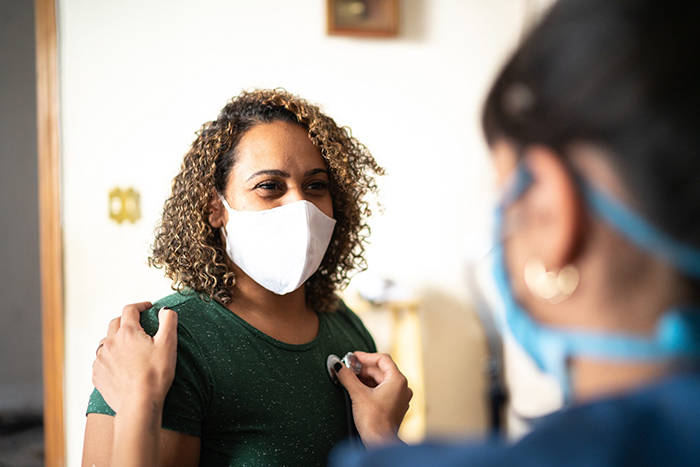For allergy and asthma sufferers in Atlanta, there are effectively three seasons: summer, winter and pollen.
In Atlanta, the warmer-than-usual weather triggers an early release of tree pollen. As a result, pollen counts start rising in mid-February. This means allergy season typically arrives at the tail end of flu season — which may seem unfair.
Respiratory allergies, such as asthma and allergic rhinitis (also called hay fever), flare up because of a heightened immune system response to pollen particles. Allergic rhinitis produces the typical sneezing and runny nose associated with pollen season, as well as itchy, watery eyes. You can also experience itching in your ears, nose and throat.
For some people, this is mildly irritating but can be handled by staying indoors when pollen counts are high. Symptoms are also treatable with over-the-counter or prescription medications. A primary care physician (PCP), nurse practitioner or physician assistant can help. Older adults, children and women who are pregnant or breastfeeding should talk to their health care provider before taking over-the-counter medications.
However, allergic rhinitis can set the stage for viral or bacterial infections to take hold in your sinuses, ears, throat and chest. If left untreated, these infections can develop into more serious conditions.
Tip: Not sure whether you have allergies or a sinus infection? If it’s allergies, your mucus will often be clear. Mucus that’s cloudy, white, yellow or greenish can indicate a sinus infection.
Pollen sensitivity can also trigger asthma or bronchitis, both of which are conditions that affect airways in our lungs and can cause shortness of breath and wheezing. Asthma is caused by muscles tightening around the airways, causing them to narrow and restrict the amount of air that gets in your lungs. Meanwhile, bronchitis occurs when the lining of the airways becomes inflamed and is usually caused by an infection. It’s possible to suffer from both at the same time, which is called asthmatic bronchitis.




